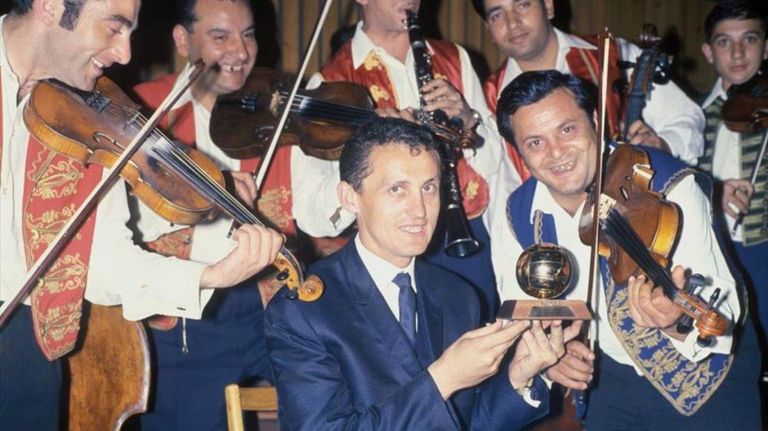
FIFA itself has named him the most elegant footballer of all time. Hungarian Florian Albert was one of the great stars of the 60s and 70s. The undisputed idol of Ferencvaros, he passed away last month at the age of 70.
After him, Hungarian football was empty. The team that had become accustomed to frequent leadership and the glory of teams that never forget faded away, stopped in time. Florian Albert, that huge footballer (he was 187 centimetres tall) with a giant game was the last great exponent that the Magyars offered.
They say that the best expression of him occurred on the occasion of the 1966 World Cup: at Goodison Park, a stadium full of expectations was ready to pay tribute to Pelé - who had long been O Rei - and his outstanding partners Garrincha and Tostao. But suddenly, that big man with his head held high, with impeccably synchronized movements, became first the master of the game and then the unanimous recognition. Against all odds, the defending champions of Chile 1962 stumbled upon Albert. He was,
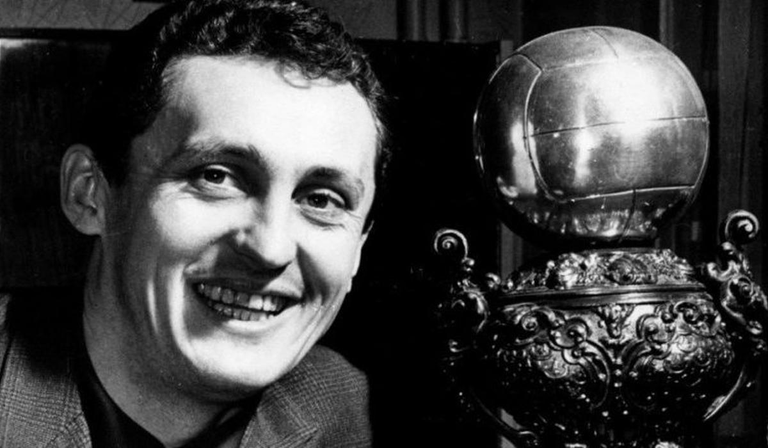
His honours list does not count his game, but it defines him: Albert was and is the only Hungarian to have won the Ballon d'Or, in 1967. Born in the land of Ferenc Puskas and the other Hungarian stars of 1954, such a conquest is an enormous source of pride. He played 75 games for his national team between 1959 and 1974. And during that period he was the best of the heirs of that elite that made Hungary the best team in the world in the 1950s, beyond the Miracle of Bern (that extraordinary episode in which Germany defeated them in the World Cup final). He scored 31 for the Hungary of his heart. Four of them took place in the 1962 World Cup in Chile, where he was one of the top scorers and officially considered the best young player of the tournament. He also won bronze at the 1960 Rome Olympics and at the European Championships held in Spain in 1964.
José Sámano tells the newspaper El País: “Football, a metaphor for life, does not always reward the protagonists of its best story in time. The Hungarians, for example, who were the protagonists of one of the great epics of this sport in the 1950s (...) In 1967, Florian received the Golden Ball, the only one received by a Hungarian. Well deserved by Albert, great heir of one of the best schools in history. With Albert, football bore fruit to one of its greatest debts.” That individual conquest was much more than a trophy; it was the vindication of those who had been his inspirations. Albert always said it: “Everything I learned about football I learned from that team.” That of those unforgettable Hungarians: Kocsis, Puskas, Czibor, Hidegkuti...
Beyond the national team, he was faithful to the team that gave him space: Ferencvaros. He always said about the Budapest institution: “It is the great love of my life.” In those days he earned a couple of nicknames: The Emperor and The Dancer. The first spoke of his conquests; the second, of the paths he followed to achieve success. He debuted at 17 and wore that shirt in the style of Bochini: always. Between 1958 and 1974 he scored 256 goals in the 351 games he played and won four league titles. In 1965 he also won the Fairs Cup, the precursor to the UEFA Cup and today's Europa League. That victory in the final against Juventus, in Turin, was the only continental title at club level for Hungarian football. Nothing less...
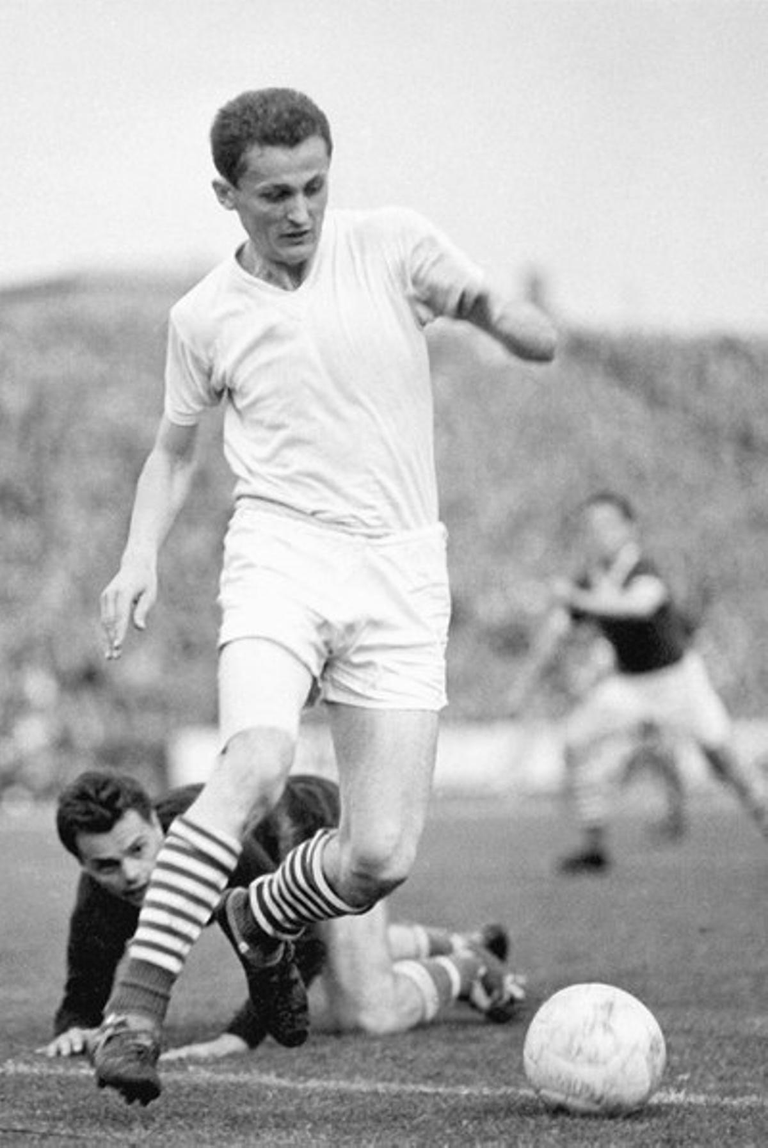
The journalist Jesús Camacho writes in El Enganche: “In football, we all have in our minds the game and elegance of certain footballers, those capable of endowing their pose, their trajectory and their fight with smooth movements and grace. That lineage of players who turned this sport into art, into dance, into music, a lineage to which belongs a Hungarian 'giant' who was born in the middle of World War II in a small town called Hercegszántó, a Green Eagle called Florian Albert". He was born to play football and he made sure to learn everything from the best teachers possible. He was, essentially, a militant of the aesthetics of the game.
The Royal Spanish Academy, in its definition of elegance, also describes the Hungarian star as “endowed with grace, nobility and simplicity; graceful, well-proportioned, with good taste.” The chronicles of the time also recounted this, as did those who saw him on the pitch: his game had everything that the word demands.
The latest news was a blow. The Reuters agency reported on the last day of October: "Former footballer Florian Albert, winner of the Ballon d'Or in 1967, died on Monday at the age of 70. The football federation of his country, responsible for announcing the news, has not explained the reasons for his death, although last week he underwent heart surgery after which he suffered some complications." He was gone forever, perhaps without knowing it: an entire country and that sport that he embraced as his deepest passion will always keep him as one of its greatest desires. The doctors who operated on him for the last time did not realize: Albert's heart was still beating like a soccer ball.
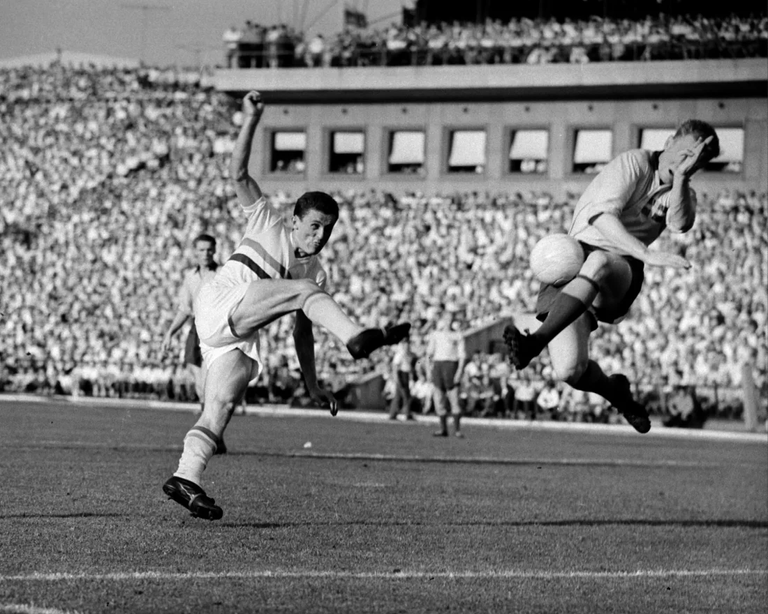
I hope you liked this post. If you have any questions, queries or would like to add to this post, please feel free to write in the comments section. You can also visit Facebook, Twitter, Linkedin, Instagram, Pinterest and Feedly where you will find additional information to this blog. SHARE IT ON!

La propia FIFA lo mencionó como el futbolista más elegante de todos los tiempos. El húngaro Florian Albert fue una de las grandes estrellas de los años 60 y 70. Ídolo indiscutible de Ferencvaros, falleció el mes pasado a los 70 años.
Después de él, el fútbol húngaro quedó vacío. El equipo que se había acostumbrado al liderazgo frecuente y la gloria de los equipos sin olvidar se desvaneció, se detuvo en el tiempo. Florian Albert, ese futbolista enorme (medía 187 centímetros) con un juego gigante fue el último gran exponente que ofrecían los magiares. Dicen que la mejor expresión de él ocurrió con motivo del Mundial de 1966: en Goodison Park, un estadio lleno de expectativas estaba dispuesto a rendir homenaje a Pelé -que ya hacía tiempo que era O Rei- y a sus destacados socios Garrincha. y Tostao.
Pero de repente, ese grandote con la cabeza erguida, con movimientos impecablemente sincronizados, se convirtió primero en el dueño del juego y luego en el reconocimiento unánime. Contra todo pronóstico, los campeones defensores de Chile 1962 tropezaron con Albert. Era,
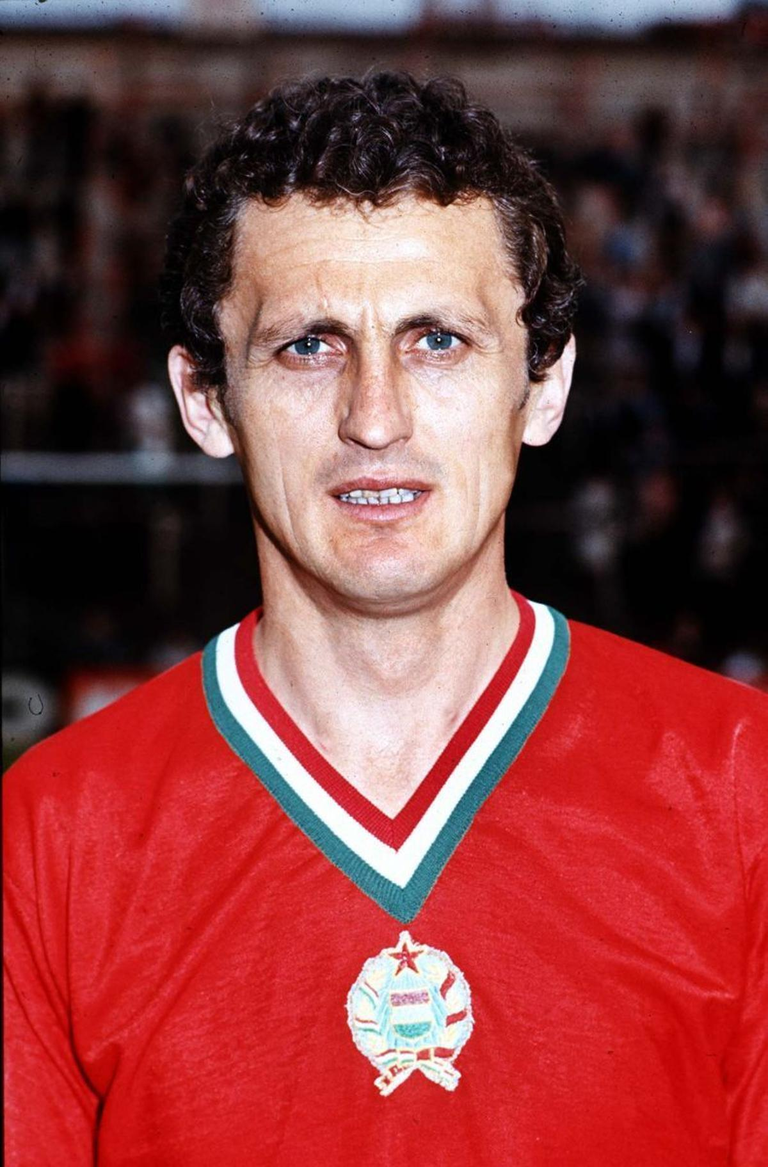
Su palmarés no cuenta su juego, pero lo define: Albert fue y es el único húngaro que ha ganado el Balón de Oro, en 1967. Nacido en la tierra de Ferenc Puskas y el resto de cracks magiares de 1954, tal conquista significa una enorme fuente de orgullo. Jugó 75 partidos con su selección entre 1959 y 1974. Y en ese periodo fue el mejor de los herederos de aquella élite que convirtió a Hungría en la mejor selección del mundo en los años 50, más allá del Milagro de Berna (aquel episodio extraordinario en el que Alemania lo derrotó en la final de la Copa del Mundo). Marcó 31 para la Hungría de su corazón. Cuatro de ellos sucedieron en el Mundial de Chile de 1962, en el que fue uno de los máximos goleadores y considerado oficialmente el mejor jugador joven del torneo. También ganó el bronce en los Juegos Olímpicos de Roma de 1960 y en la Eurocopa que se celebró en España en 1964.
José Sámano relata en el diario El País: “El fútbol, metáfora de la vida, no siempre premia a tiempo a los protagonistas de su mejor historia. A los húngaros, por ejemplo, que protagonizaron una de las grandes epopeyas en los años 50 de esta deporte (...) En 1967, Florian recibió el Balón de Oro, el único recibido por un húngaro. Bien merecido por Albert, gran heredero de una de las mejores escuelas de la historia. Con Albert, el fútbol dio sus frutos a uno de los sus mayores deudas". Esa conquista individual fue mucho más que un trofeo; Se trataba de la reivindicación de quienes habían sido sus inspiradores. Albert siempre lo decía: "Todo lo que aprendí de fútbol lo aprendí de ese equipo". La de aquellos húngaros imborrables: Kocsis, Puskas, Czibor, Hidegkuti...
Más allá del seleccionado, fue fiel al equipo que le dio espacio: el Ferencvaros. Siempre contó sobre la institución de Budapest: “Es el gran amor de mi vida”: En aquellos tiempos se ganó un par de apodos: El Emperador y El Bailarín. El primero hablaba de sus conquistas; el segundo, de los caminos que siguió para alcanzar el éxito. Debutó a los 17 años y vistió esa camiseta al estilo Bochini: siempre. Entre 1958 y 1974 marcó 256 goles en los 351 partidos que disputó y ganó cuatro títulos de Liga. En 1965 también se proclamó campeón de la Copa de Ferias, precursora de la Copa de la UEFA y actual Europa League. Aquella victoria en la final ante la Juventus, en Turín, supuso el único título continental a nivel de clubes para el fútbol húngaro. Nada menos...
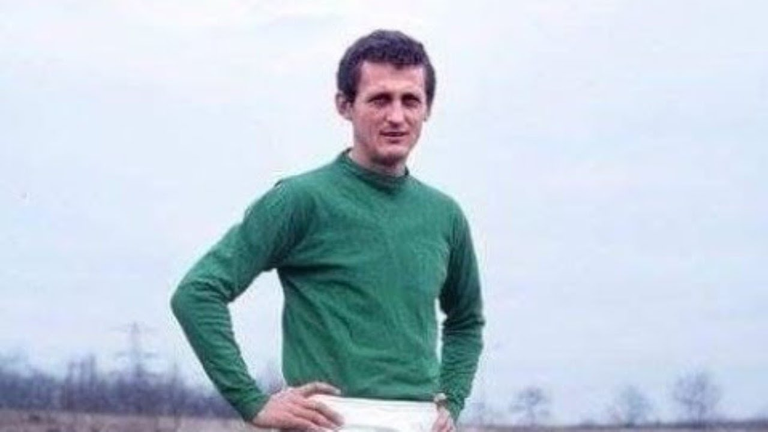
El periodista Jesús Camacho escribe en El Enganche: “En el fútbol todos tenemos en la retina el juego y la elegancia de ciertos futbolistas, esos capaces de dotar a su pose, a su trayectoria y a su lucha, de movimientos suaves y gracia. Esa estirpe de jugadores que convirtió este deporte en arte, en danza, en música, estirpe a la que pertenece un 'gigante' húngaro que nació en plena Segunda Guerra Mundial en un pequeño pueblo llamado Hercegszántó, un Águila Verde llamado Florian Albert". Nació para jugar al fútbol y se preocupó por aprenderlo todo de la mano de los mejores profesores posibles. Fue, esencialmente, un militante de la estética del juego.
La Real Academia Española, en su definición de elegancia, también retrata a la estrella húngara: “dotada de gracia, nobleza y sencillez; graciosa, proporcionada, de buen gusto”. Lo contaron también las crónicas de la época y lo contaron después los que lo vieron sobre el césped: su juego tenía todo lo que la palabra exige.
La última noticia fue un mazazo. La agencia Reuters informaba el último día de octubre: "El exfutbolista Florian Albert, ganador del Balón de Oro en 1967, falleció este lunes a los 70 años. La federación de fútbol de su país, encargada de dar a conocer la noticia, no ha explicado los motivos de su muerte, aunque la semana pasada fue intervenido quirúrgicamente del corazón tras el que sufrió algunas complicaciones". Se fue para siempre, quizás sin saberlo: todo un país y ese deporte que abrazó como su más profunda pasión lo mantendrá siempre como uno de sus mejores anhelos. Los médicos que lo operaron por última vez no se dieron cuenta: el corazón de Albert todavía latía como un balón de fútbol.
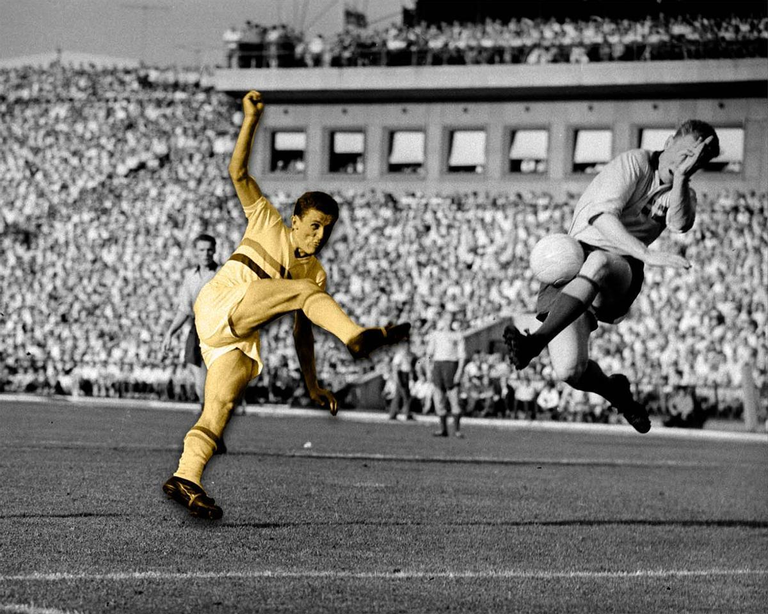
Espero que esta publicación te haya gustado. Si tienes alguna duda, consulta o quieras complementar este post, no dudes en escribir en la zona de comentarios.



Sources consulted (my property) for the preparation of this article. Some paragraphs may be reproduced textually.
Fuentes consultadas (de mi propiedad) para la elaboración del presente artículo. Algunos párrafos pueden estar reproducidos textualmente.
| Argentina Discovery. |  |
|---|---|
| Galería Fotográfica de Argentina. |  |
| Viaggio in Argentina. |  |
Congratulations, your post has been upvoted by @dsc-r2cornell, which is the curating account for @R2cornell's Discord Community.
Enhorabuena, su "post" ha sido "up-voted" por @dsc-r2cornell, que es la "cuenta curating" de la Comunidad de la Discordia de @R2cornell.
My thanks to the entire @dsc-r2cornell team and in particular to @abiga554 for voting, curating and supporting my content.